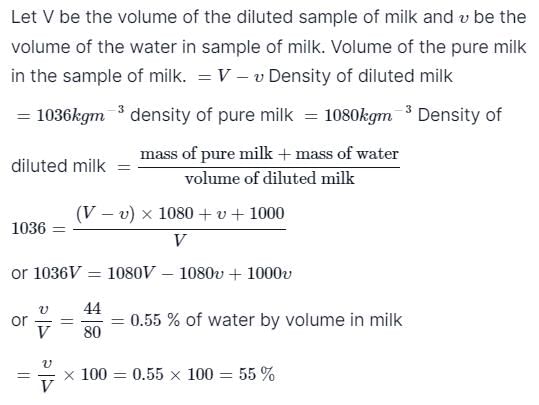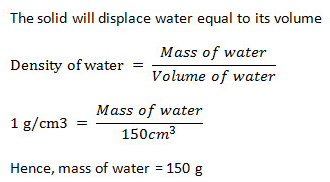Test: Archimedes Principle (Old Syllabus) - Class 9 MCQ
15 Questions MCQ Test - Test: Archimedes Principle (Old Syllabus)
An object weighing 5 N in air, weighs 4.5 N a liquid. The buoyant force experienced by the object is
The same body is immersed in two liquids A and B in succession. The extent to which the body sinks in liquid B is less then in liquid A. What are the conclusions that could be derived from such an observation
A sample of milk diluted with water has density 1036kgm−3. if pure milk has a density 1080kgm−3 what is the percentage of water by volume in milk ?
A student lowers a body in a liquid filled in a container. He finds that there is a maximum apparent loss in weight of the body when
The density of copper is 9 g/cm3. Then the volume of 90 g copper is
The sea water is denser than fresh water due to
Instrument used for measuring the density or relative density of liquids is known as
A packet of 400 g and volume 200 cm3 is put in a water tank. The relative density of packet is
An object of weight 500 N is floating in a liquid. The magnitude of buoyant force acting on it is
If relative density is 11.3, the density of the substance in SI units is
If the density of the object placed in a liquid is equal to the density of the liquid, the object will:
The mass of water displaced by a solid of mass 400 g and volume 150 cm3 is
Three objects A, B, and C having density 1.12 g cm-3, 0.92 g cm-3 and 2.02 g cm-3 respectively, are placed in a water tank. Which object will sink in water tank?
When a solid body is fully immersed in a liquid, the volume of the displaced liquid is:
If we want to determine the volume of a solid by immersing it in water, the solid should be





















